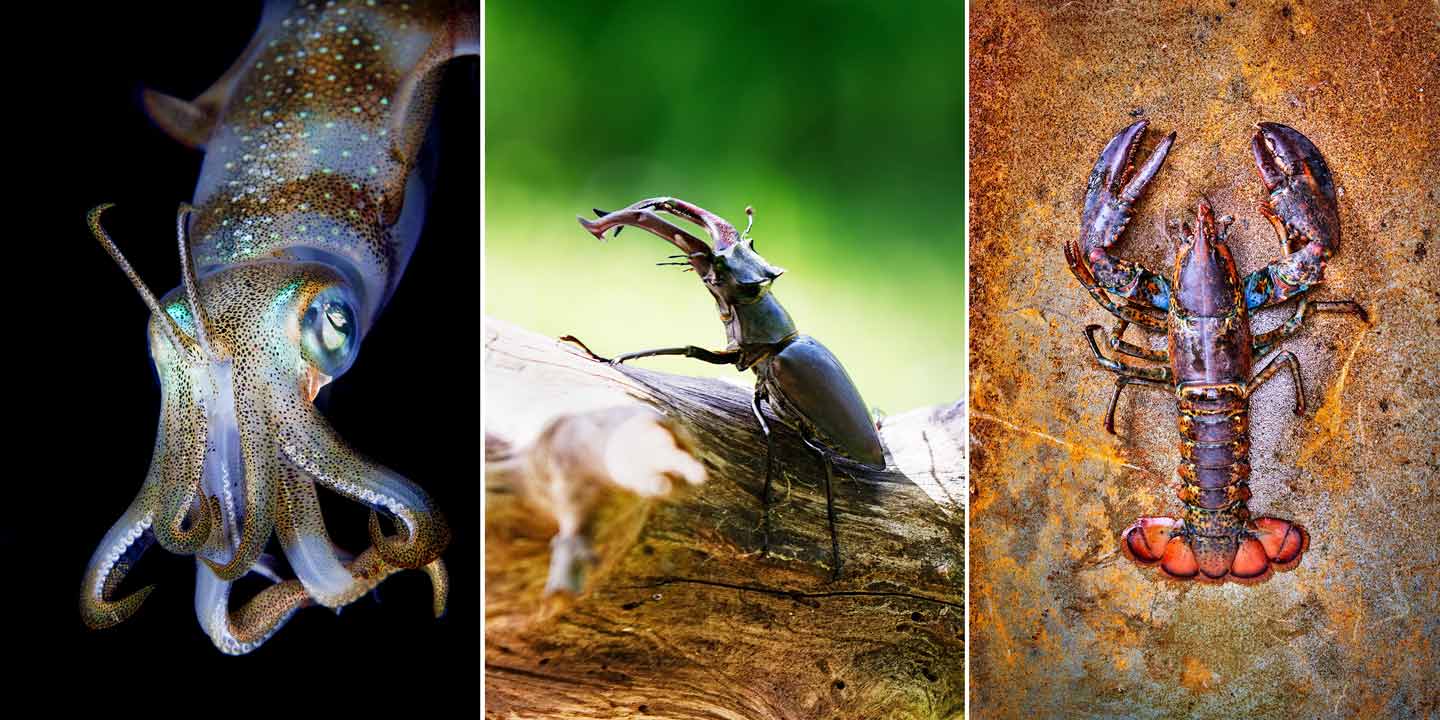Physical Address
304 North Cardinal St.
Dorchester Center, MA 02124
Physical Address
304 North Cardinal St.
Dorchester Center, MA 02124

When it comes to understanding the consciousness of animals, our focus often falls on mammals like dogs, cats, and horses. But what about creatures that don’t fall into the mammalian category? Invertebrates, such as beetles, ants, and spiders, have long been regarded as highly intelligent and adaptable. However, the question of whether they possess consciousness remains a subject of scientific inquiry.
Invertebrates make up a staggering 97 percent of all animal species on Earth, ranging from insects and scorpions to lobsters, crabs, and octopuses. These creatures exhibit remarkable cognitive abilities, such as memory, problem-solving, and planning skills. But do these traits indicate the presence of consciousness?
Scientists and philosophers have been grappling with the challenge of defining and identifying consciousness in non-human animals. Some use the term “sentience” to describe the ability to experience sensations and emotions, while others emphasize “self-awareness” as a key aspect of consciousness. Both concepts revolve around the idea of having subjective experiences and being aware of them.
Research has provided intriguing insights into the potential consciousness of invertebrates. Experiments have suggested that insects, crustaceans, and other invertebrates can experience pain and fear. For instance, hermit crabs have been observed making conscious decisions based on trade-offs and risk assessment. They weigh the potential danger of encountering a predator against the safety of their shells, demonstrating a level of cognitive processing beyond mere reflexes.
Furthermore, invertebrates like spiders have exhibited exceptional memory and planning abilities. Spiders have been shown to remember the locations of food sources and adjust their web-building strategies accordingly. This level of cognitive flexibility and adaptive behavior aligns with the features of consciousness observed in humans.
However, the challenge lies in interpreting these findings and understanding consciousness from the perspective of vastly different organisms. Invertebrates perceive the world through different sensory modalities, relying on smell, sound, or vibration rather than vision. Their experiences and consciousness may be fundamentally different from our own.
Scientists like Rafa Rodríguez, a biologist at the University of Wisconsin–Milwaukee, are driven by the desire to delve into the minds of invertebrates and gain a deeper understanding of their experiences. While acknowledging the limitations of fully comprehending their consciousness, researchers strive to bridge the gap and uncover as much as possible.
Ultimately, the question of whether invertebrates possess consciousness remains open. The cause-effect relationship between their cleverness and consciousness is complex and multifaceted. Further research and exploration are necessary to unravel the mysteries of invertebrate consciousness and shed light on the fascinating cognitive abilities of these remarkable creatures.
The question of whether invertebrates possess consciousness has far-reaching implications for our understanding of the animal kingdom and our ethical treatment of these creatures. If invertebrates do indeed have consciousness, it challenges our traditional notions of what it means to be sentient and raises important considerations for their welfare.
Recognizing the consciousness of invertebrates would necessitate a shift in how we perceive and interact with these animals. It would require us to acknowledge their capacity for subjective experiences, emotions, and potentially even a sense of self. This understanding would demand a more compassionate and empathetic approach to their treatment.
From an ethical standpoint, the consciousness of invertebrates raises questions about the moral implications of using them in scientific research, agriculture, and other industries. If these creatures can experience pain, fear, and other emotions, it becomes imperative to ensure their well-being and minimize any unnecessary harm inflicted upon them.
Furthermore, understanding the consciousness of invertebrates could have implications for conservation efforts and environmental policies. Invertebrates play crucial roles in ecosystems as pollinators, decomposers, and prey for other species. Recognizing their consciousness would underscore the importance of preserving their habitats and safeguarding their populations.
Additionally, the recognition of invertebrate consciousness could reshape our understanding of animal intelligence and cognition. By expanding our definition of consciousness to include a broader range of species, we gain a more comprehensive perspective on the diversity and complexity of cognitive abilities in the animal kingdom.
Scientifically, exploring the consciousness of invertebrates opens up new avenues for research and understanding the evolution of consciousness itself. By studying the neural mechanisms and cognitive processes of these creatures, we can gain insights into the origins and development of consciousness across different species.
Ultimately, the recognition of invertebrate consciousness would have profound implications for our relationship with the natural world. It would challenge us to reevaluate our treatment of all animals, regardless of their size or taxonomic classification. By embracing a more inclusive and compassionate perspective, we can foster a greater sense of interconnectedness and responsibility towards the diverse array of conscious beings that share our planet.
If you’re wondering where the article came from!
#